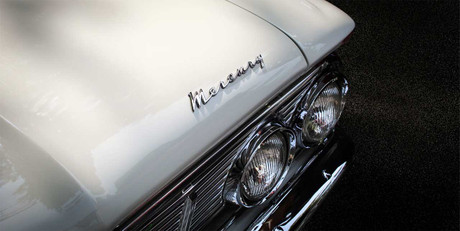Classic Mercury Cars
Posted by Dale Edward Johnson on Jan 11th 2021
For more than 70 years, starting in 1938, Mercury was a premium model offered by the Ford Motor Company. Mercury filled the gap between Ford and Lincoln by offering more style, performance and luxury than a Ford at a lower cost than a Lincoln.
The postwar Mercurys, introduced in 1949, quickly became popular with hot rodders. A 1949 Mercury was driven by James Dean in the movie “Rebel Without a Cause.” Mercurys were known for performance models in the 1960s and 1970s. Also, in the 1960s, full-size Mercurys began to take on the appearance of Lincolns, rather than Fords. By the early 2000s, Mercury sales were in trouble, partly because high-end Fords were approaching Lincolns in price and luxury. With sales falling, Ford announced in 2010 that the Mercury line would be dropped.
The Mercury name still conjures up images of stylish, well-performing, luxurious cars that are somewhat rarer and more exotic than commonplace Fords. For Mercury lovers, there are lots of classic Mercury parts available. Perhaps the most difficult part of being a Mercury fan is deciding just what kind of Mercury to get – but no matter which one is your preference, there are lots of vintage car parts available.
Mercury Cougar – a bigger, more luxurious Mustang
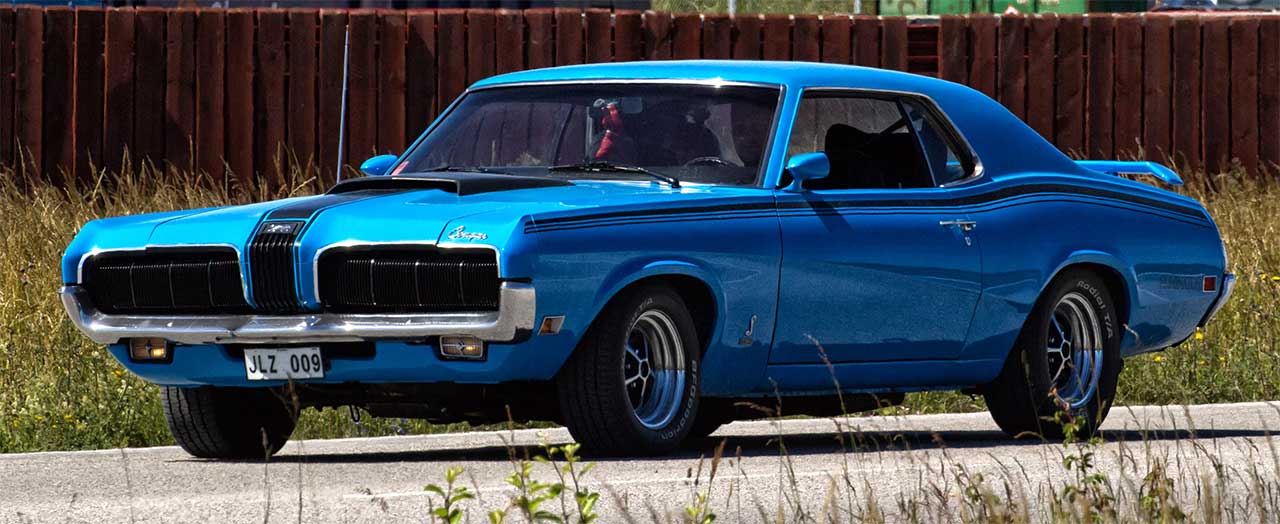
The Mercury Cougar, introduced in the fall of 1966 as Mercury’s version of the Ford Mustang, was larger and more luxurious and was named Motor Trend’s Car of the Year. The original 1967-1970 Cougars are especially attractive to car buffs. In the 1970s, Cougars became larger, and by the 1980s Cougar was applied to a variety of mid-size Mercurys, including station wagons and four-door sedans. The name was later used for a Mercury version of the Thunderbird, and then the Cougar name was used for a front-wheel drive, two-door coupe. The Cougar is the best-selling Mercury nameplate, with almost three-million sold.
Mercury Comet – a smaller Mercury
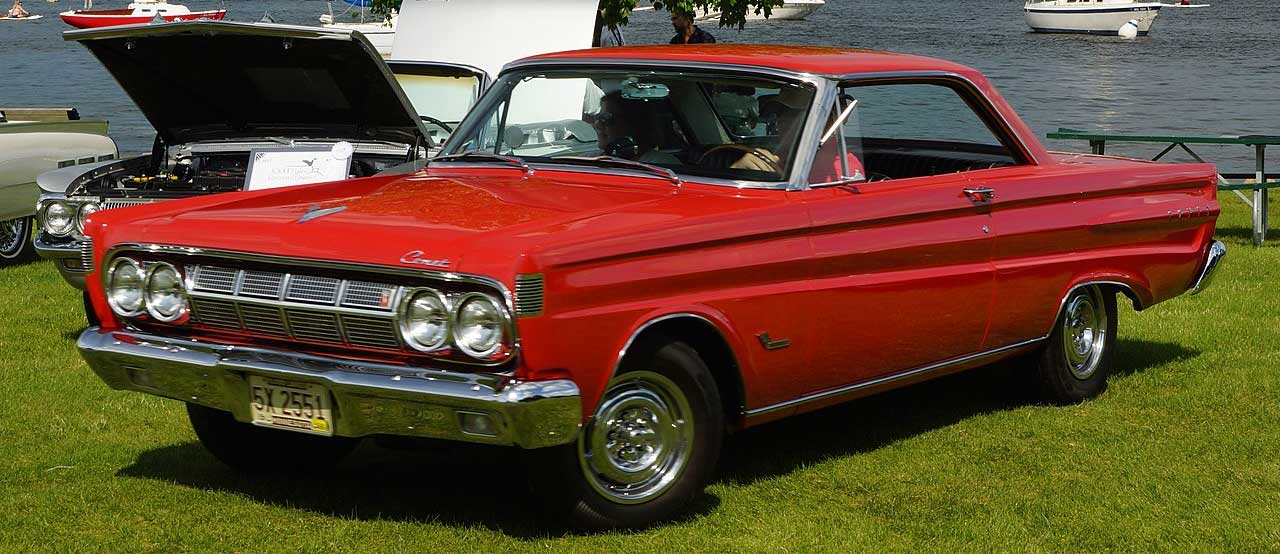
Introduced in 1960 as Mercury’s compact, the Comet was based on the Ford Falcon but was slightly larger. During the 1960s, Comets grew in size and power. After being dropped for 1970, the Comet name returned for a 1971 Mercury version of the compact Ford Maverick.
Mercury Monterey – a mid-line Mercury
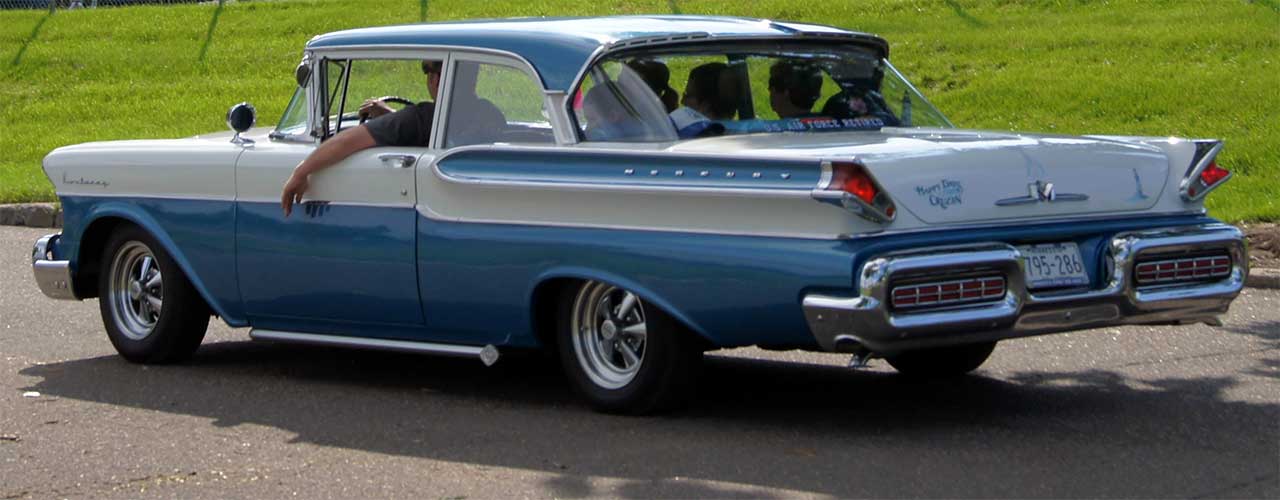
Mercury introduced the Monterey name as a premium two-door hardtop in 1950. By 1955 the Monterey became the mid-line Mercury after the new high-end Montclair came out. The Monterey name continued to be used until the end of the 1975 model year. The Monterey name was revived for the 2004 model year for a minivan based on the Ford Windstar.
Mercury Montclair – a new top-line Mercury
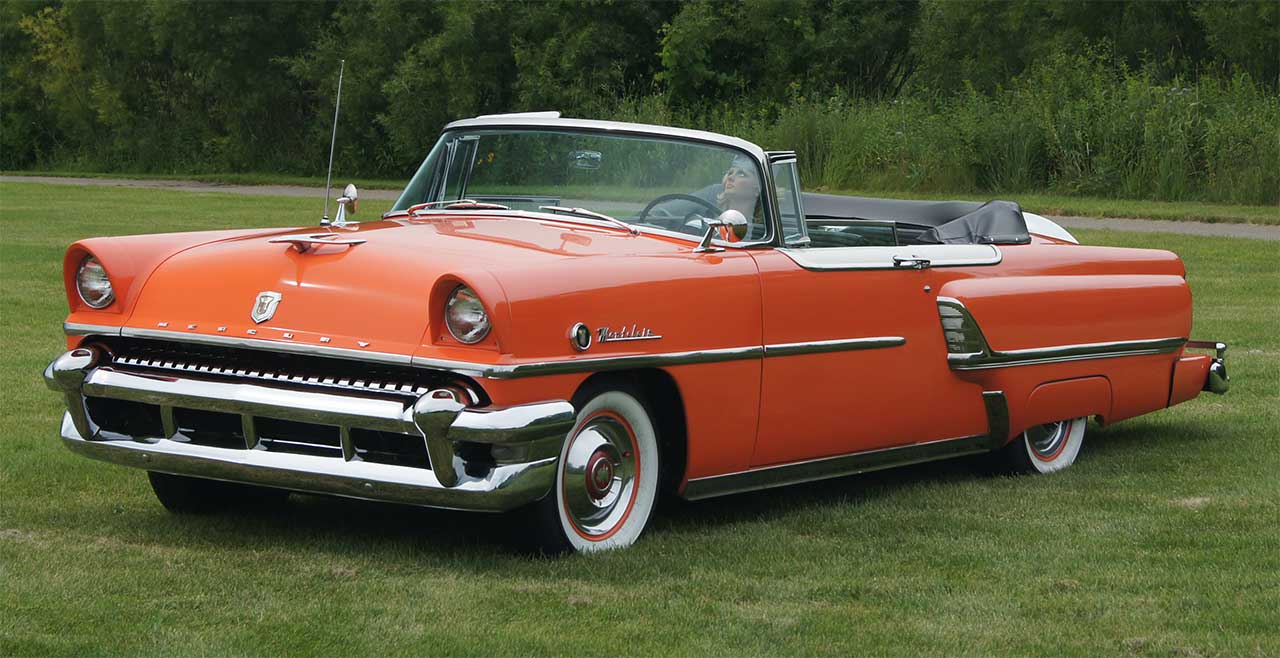
The Montclair came out for the 1955 model year, as the new top-level Mercury, but in 1957 it became the mid-trim level after the introduction of the Turnpike Cruiser. The name was dropped for 1961 but brought back for 1964. The final year for the Montclair was 1968.
Mercury Cyclone – a smaller, high-performance Mercury
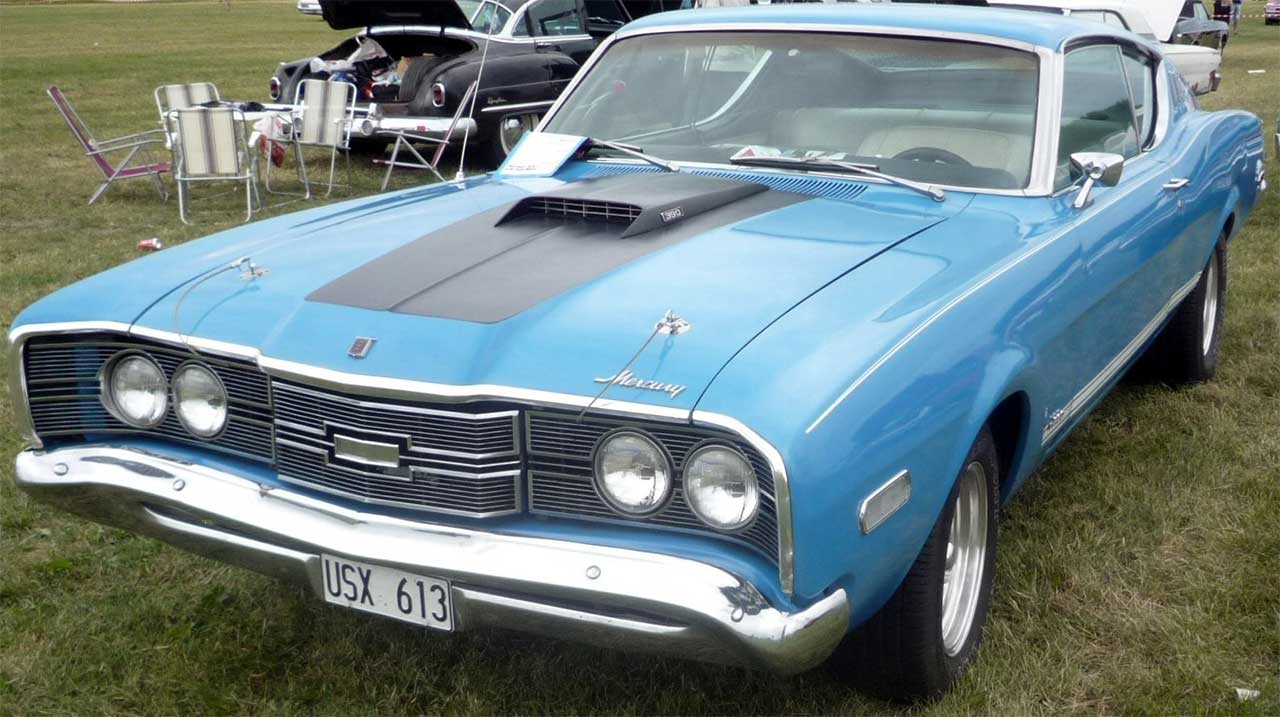
The Cyclone came out as a 1964 high-performance version of the Comet, with power from a 289 V-8. It was billed as “a performance enthusiast’s dream of a car – in every way.” The Cyclone name was later used on the high-performance, mid-size Montego until 1972. No matter what decade, a Cyclone means hot performance, but not on a full-size Mercury.
Mercury Colony Park – a luxury station wagon
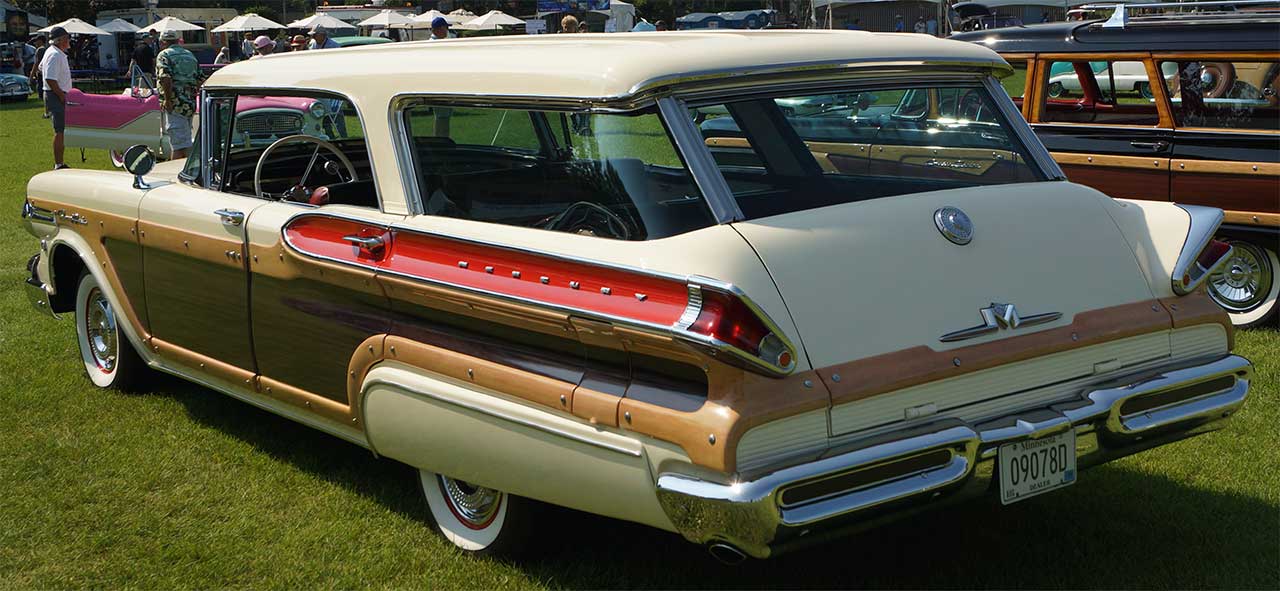
The Colony Park name was first used for the 1957 model year, for the most luxurious station wagon. It was based on a four-door hardtop. The name continued as the top Mercury station wagon until 1991.
Mercury Grand Marquis – a long-life Mercury
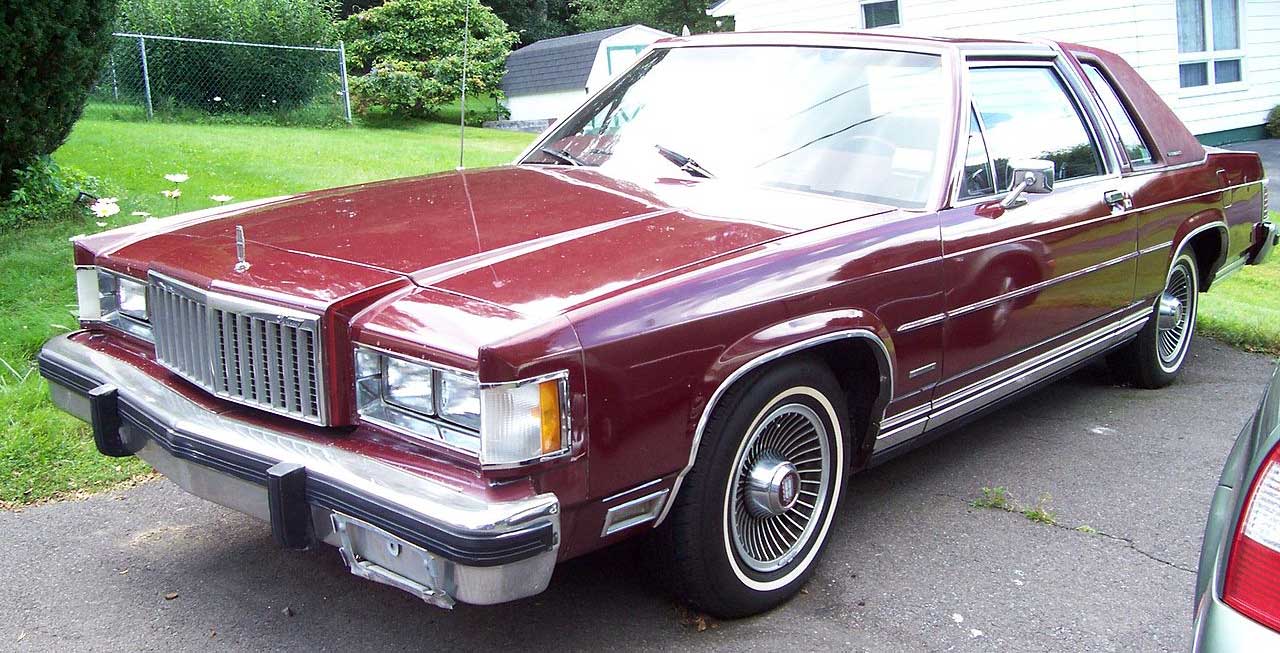
Mercury introduced the Grand Marquis as a high-end trim level starting in 1975, and by 1983 the Grand Marquis became a separate model as Mercury’s largest model, sharing a body with the Ford Crown Victoria and Lincoln Town Car. The Grand Marquis was Mercury’s longest-running model. The final Mercury ever produced was a 2011 Grand Marquis.
Mercury Sable – a twin of the top-selling Taurus
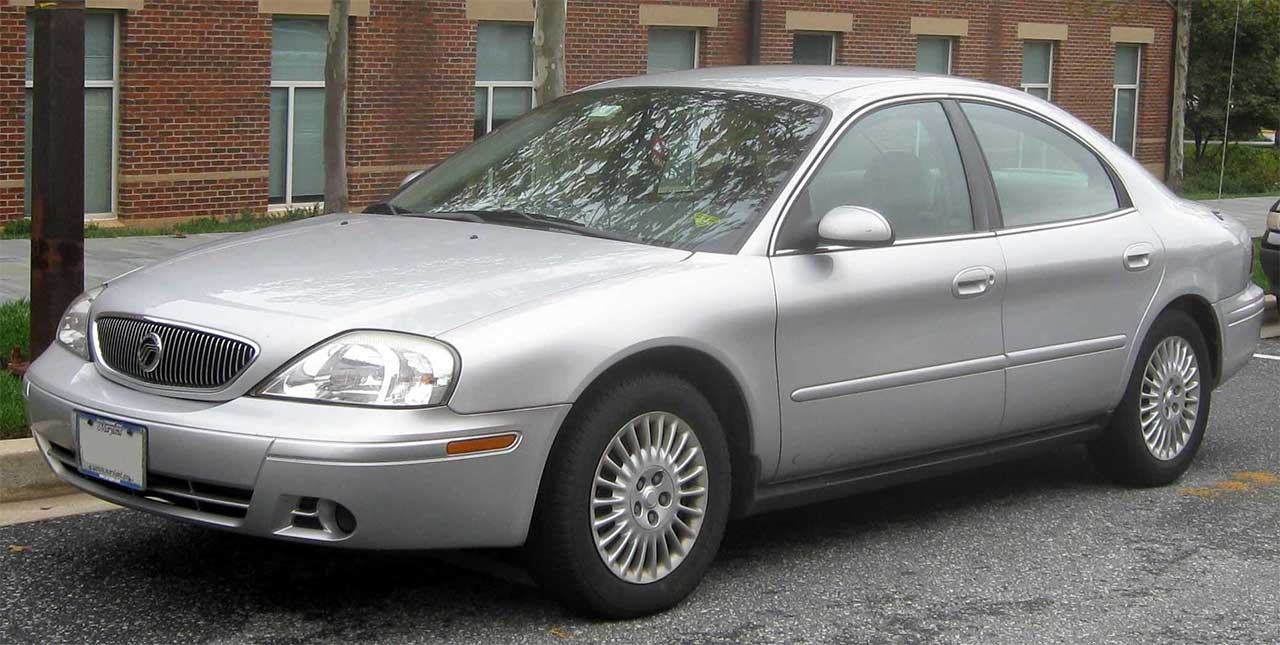
Mercury Sable was introduced for the 1986 model year and was an upscale version of the new mid-size Ford Taurus, a car that was often the best-selling car in the U.S.A. For several years, the Sable was the best-selling Mercury. Production ended in 2005. The name was brought back for a full-size car in 2008 and 2009.
Mercury Montego – a mid-sized muscular Mercury
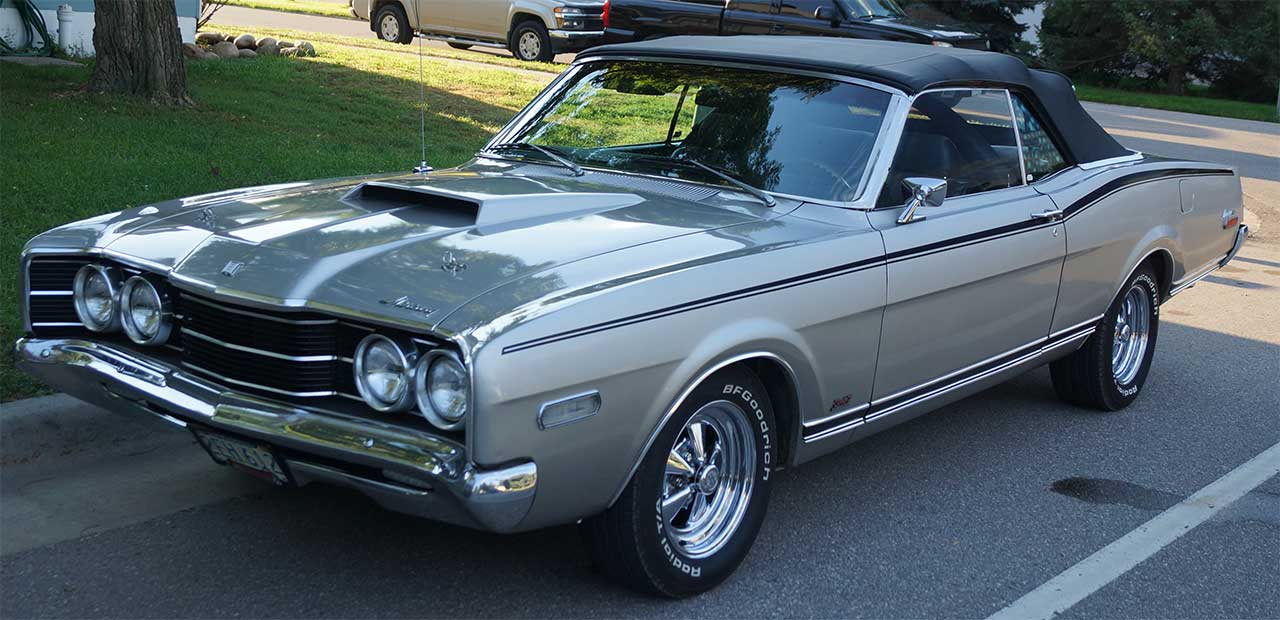
The Montego name was introduced for the 1968 model year as a high-end model of the intermediate Comet. For the 1970 model year, the Comet name was dropped and all intermediate Mercurys were given the name Montego. The Montego name was last used on an intermediate Mercury for the 1976 model year.
The Montego name was also used on two other models. It was first used for the 1967 model year only in the Canadian market for a high-end sporty model of the full-size Mercury-based Meteor. The Montego name was revived for the 2005 model year, for a full-size Mercury sedan based on the Ford Five Hundred, and was used until the end of the 2007 model year.
Mercury Park Lane – a luxury Mercury in the 1950s and 1960s
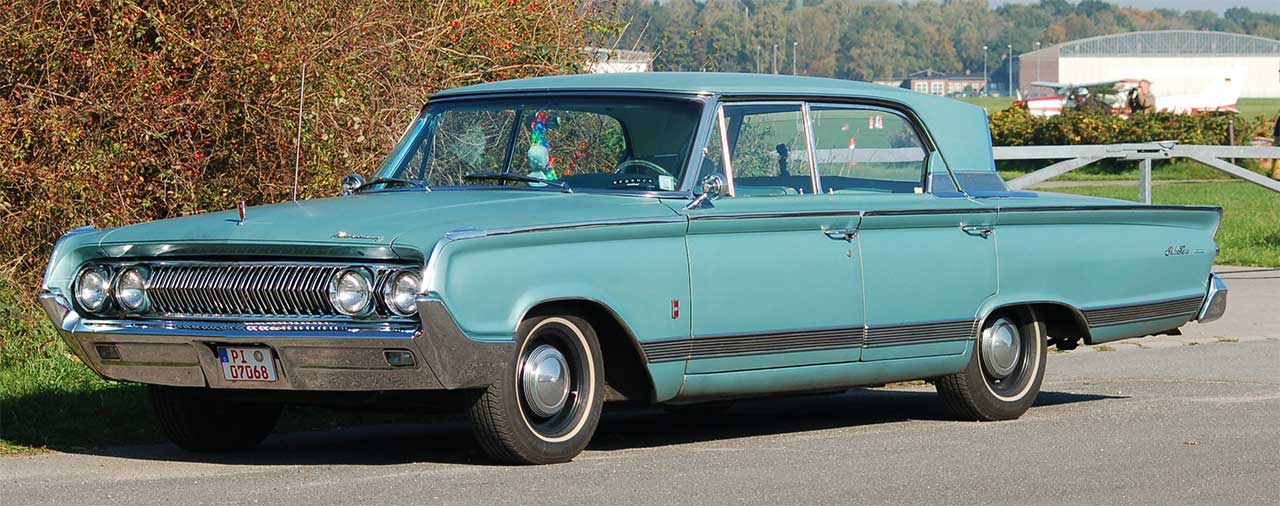
The Park Lane was introduced as Mercury’s flagship model for the 1958 model year and continued until the end of the 1960 model year, and then dropped for 1961. The Park Lane name returned for the 1964 model year and the final year was 1968. After that, the Marquis was Mercury’s most luxurious model.
The name was used first by Ford in 1956 for a premium two-door station wagon intended to compete with the Chevrolet Nomad but lasted only one year. It was spelled as one word, Parklane. The best known Park Lane models were top-end Mercurys of the 1950s and 1960s.
Mercury Marquis – a luxury Mercury in the 1960s, ’70s and ’80s
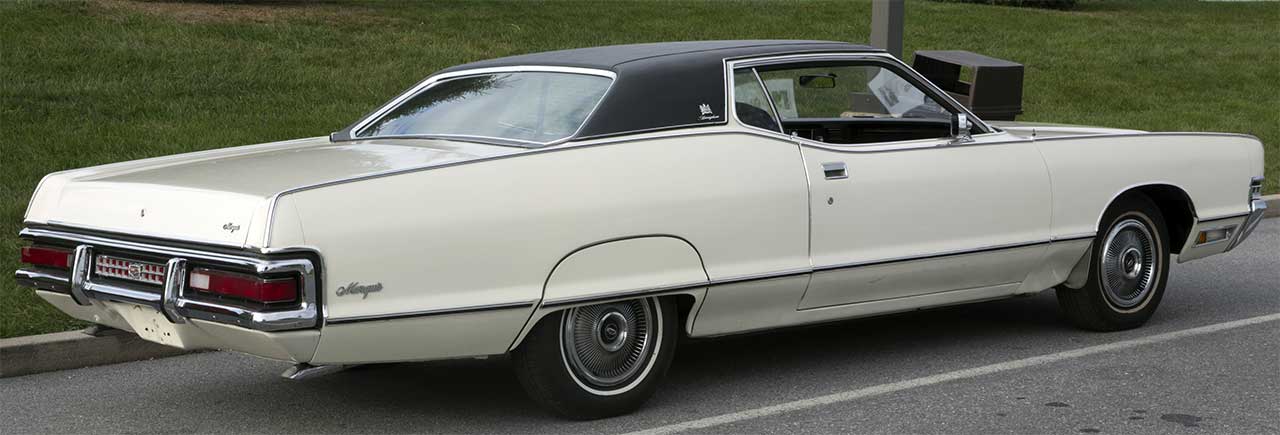
Mercury first used the name Marquis for the 1967 model year, for its top-level full-size model, which was available only as a two-door hardtop. The Marquis became a full series for the 1969 model year, with styling that was influenced by Lincoln. The Marquis was essentially the Mercury version of the top-end Ford LTD. The Marquis was downsized for the 1979 model year and was 17 inches shorter and 1,000 pounds lighter. In 1983, the full-size Marquis became the Grand Marquis, and the Marquis name was moved to Mercury’s mid-size model, which had previously been known as the Cougar. The Marquis name was last used for the 1985 model year.
Mercury Commuter – a low-priced station wagon
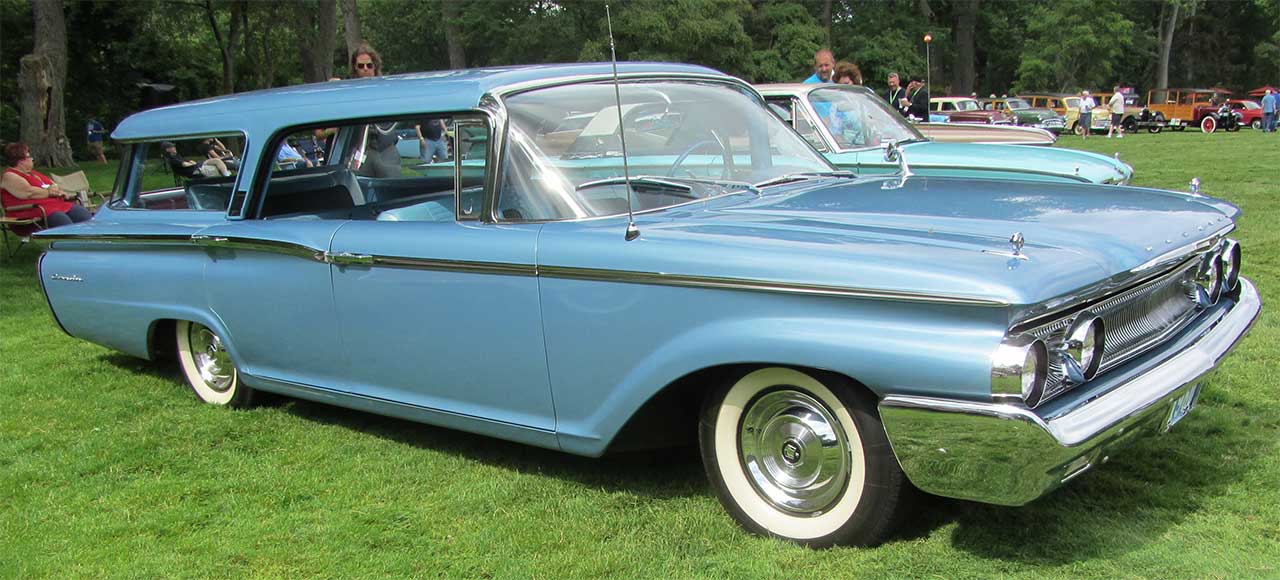
The Mercury Commuter name was introduced in 1957 as the least-expensive Mercury station wagon when Mercury brought out separate names for its station wagons. The other new names were the mid-line Voyager and the top-end Colony Park. The Commuter name was last used for the 1968 model year.
Mercury Custom – a basic Mercury
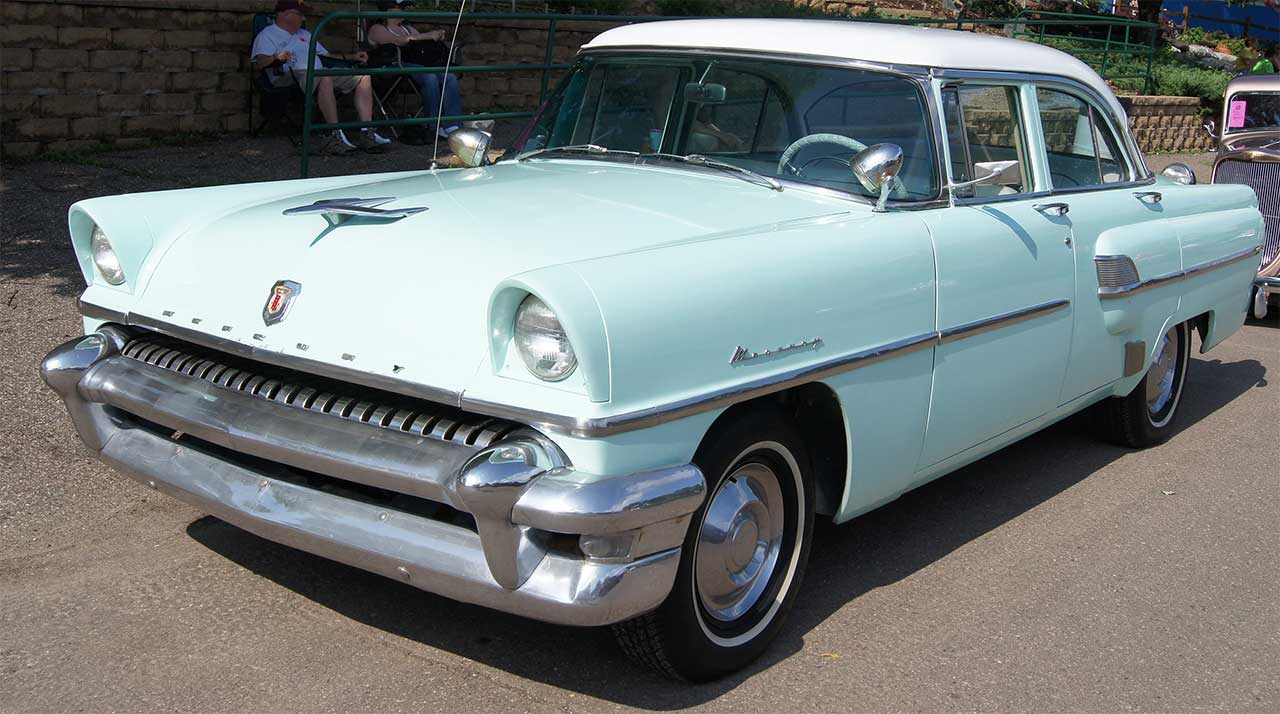
Introduced in 1952 when all Mercurys were restyled, the Custom was the entry-level, full-size Mercury. For the 1956 model year, the Custom moved up a notch, when the new Medalist became the entry-level model. However, 1956 turned out to be the final year for both the Custom and the Medalist.
Mercury Villager – a small, luxurious hauler
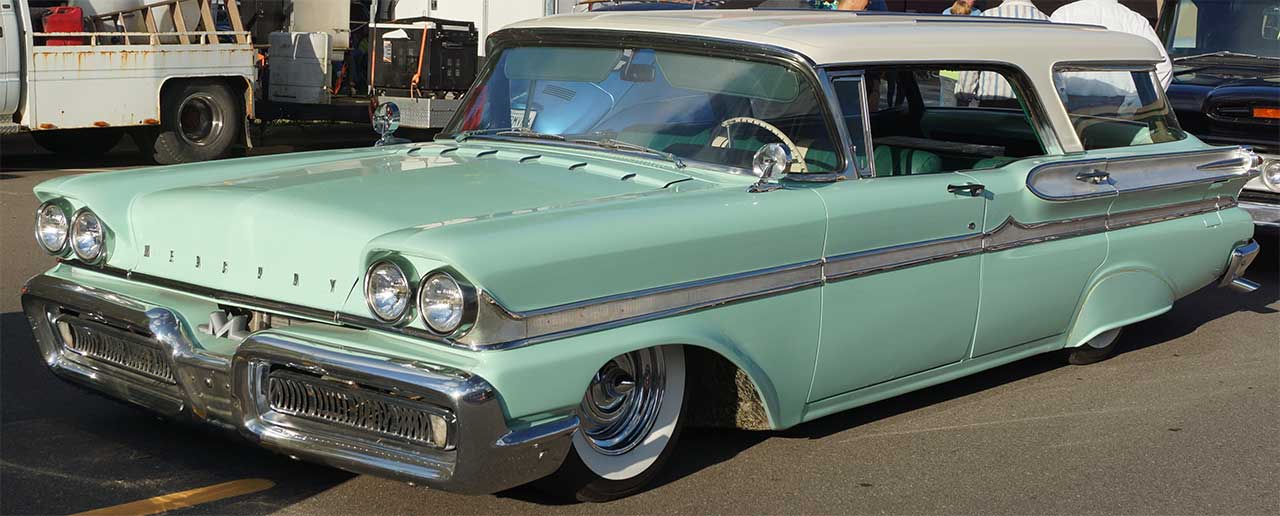
The Villager name was first used from 1962 to 1967 for the top trim level of the Comet station wagon and included simulated wood trim on the sides. The Villager name was later used from the 1993 to 2002 model years for a minivan. It was a joint venture with Nissan, and this Villager shared components with the Nissan Quest.
Mercury Meteor – a name for many models
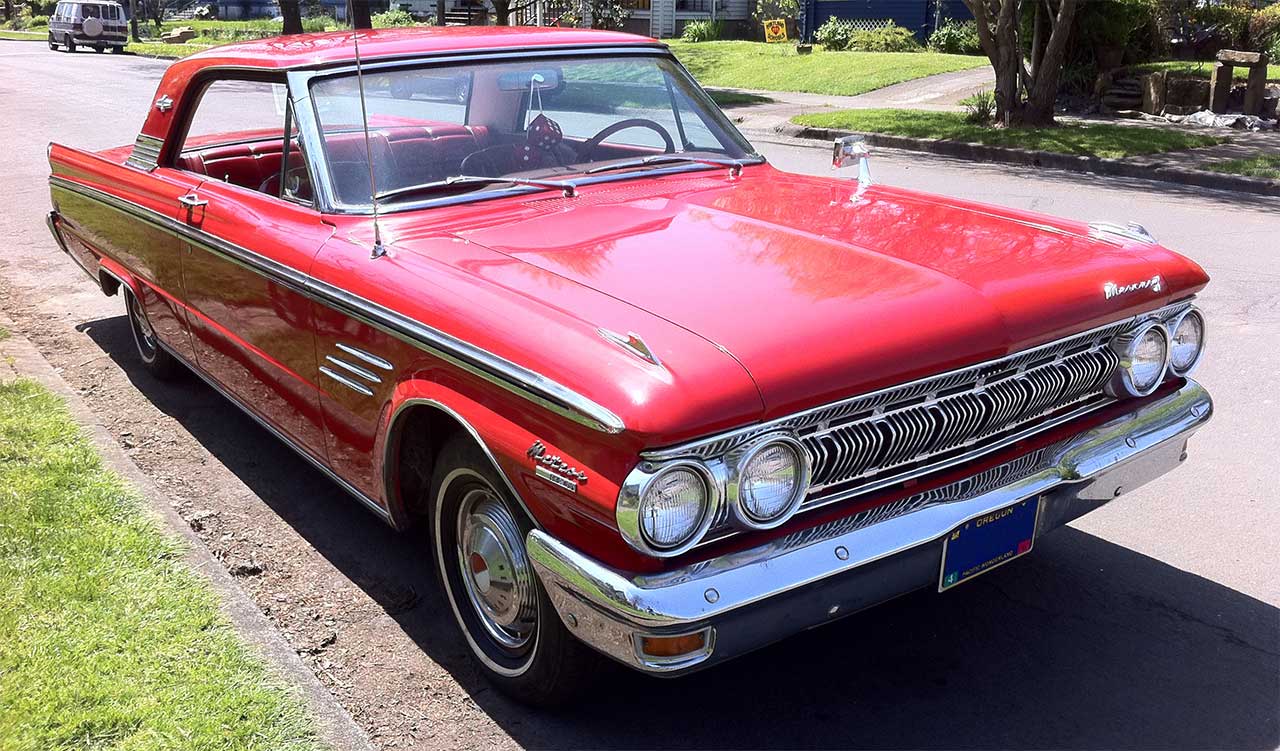
The Meteor name was first used by Ford of Canada in 1949, for a low-priced model for Mercury dealers. It was essentially a Ford body with Mercury trim. Starting for the 1961 model year, the Meteor name was taken by the U.S. parent firm for two full-size Mercury models. The entry-level full-size Mercury was called Meteor 600, and next up was the Meteor 800. Then for the 1962 model year, the Meteor name was shuffled to the new mid-sized Mercury, based on the Ford Fairlane body, with Mercury trim. Then in 1964, the Meteor's name was dropped in the U.S. but returned to Canada for a full-size model based on the Mercury body with Ford interior trim and instrument panels. So having a “Meteor” can mean a variety of models, depending on year and country of origin.
When you’re looking for automotive restoration supplies for any Mercury model, remember that Collectors Auto Supply has a full range of classic Mercury car parts. Contact Collectors Autos Supply for all of your classic car parts.


